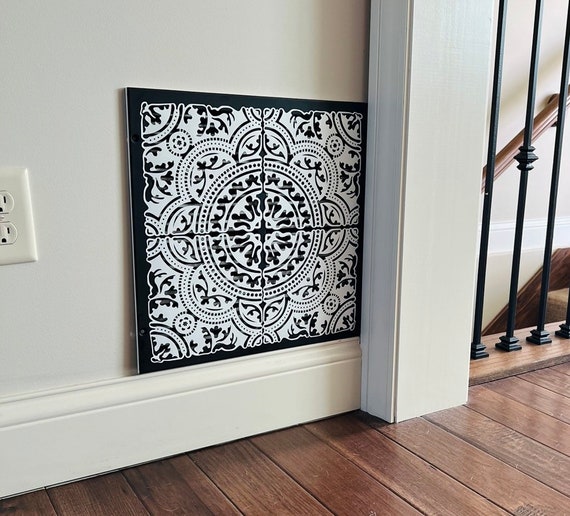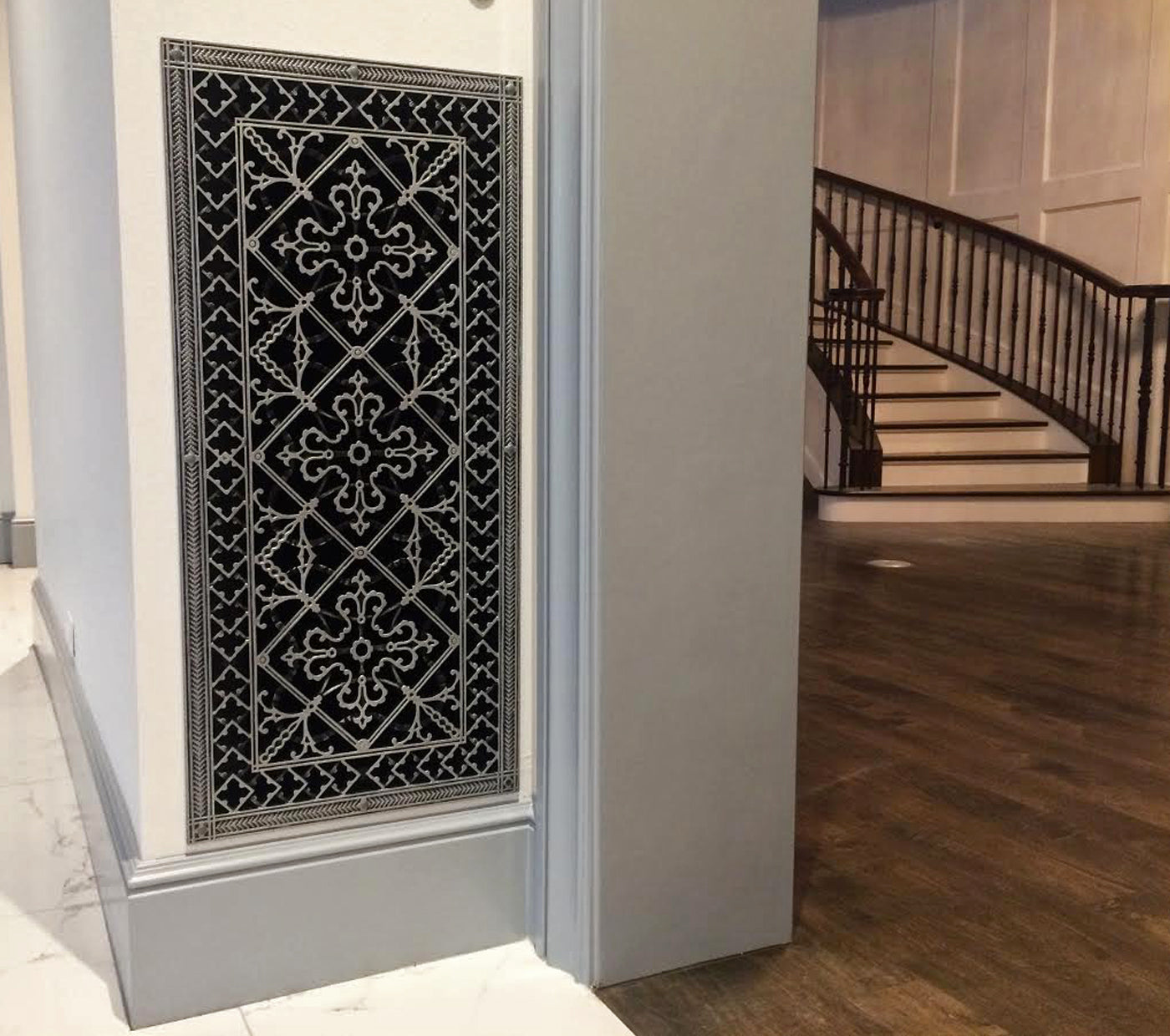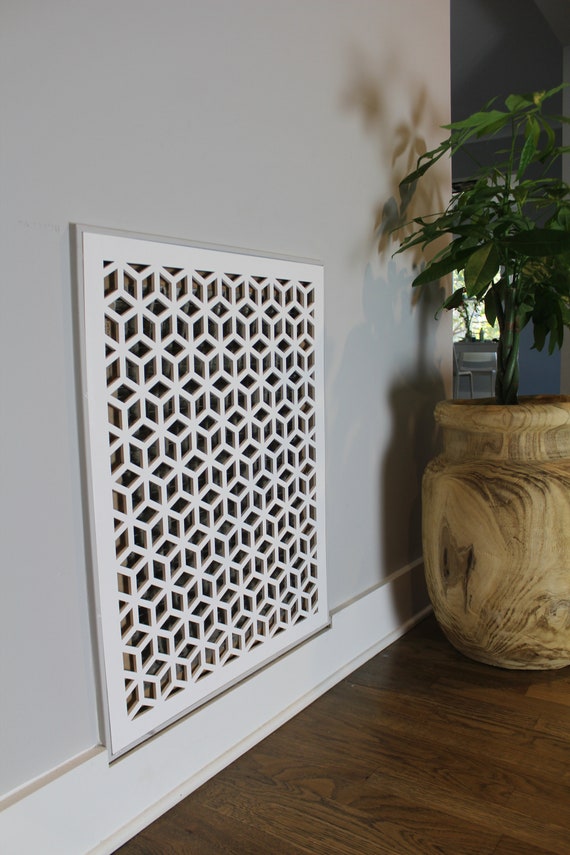When it comes to home decor, we often focus on the visible elements: furniture, wall art, and color schemes. However, there are often overlooked details that can contribute significantly to the overall aesthetic — one such detail is the humble vent grate. Decorative vent grates not only serve a functional purpose, allowing air to circulate throughout your home, but they also add a layer of sophistication and style to your space. In this comprehensive guide, we will explore everything you need to know about decorative vent grates, including styles, materials, installation tips, and maintenance.
What are Decorative Vent Grates?
Decorative vent grates are covers for HVAC vents that are designed to enhance the appearance of air ducts while allowing airflow. Unlike standard grates, which are often plain and utilitarian, decorative vent grates come in a variety of designs, patterns, and finishes, making them an attractive addition to any room.
Benefits of Decorative Vent Grates
- Aesthetics: They enhance the aesthetic appeal of your space.
- Customization: Available in various styles and materials to fit any decor.
- Functionality: They still serve the primary purpose of ventilation.
Types of Decorative Vent Grates
With a variety of designs available, decorative vent grates can complement any interior style. Here are some popular types:
Classic Grates
Known for their timeless appeal, classic grates often feature intricate patterns that hark back to vintage styles. They are perfect for traditional homes.

Modern Grates
Modern grates focus on clean lines and minimalistic designs. They typically use materials like metal or plastic and come in sleek finishes.
Rustic Grates
If you have a farmhouse or cottage-style home, rustic grates made of reclaimed wood or wrought iron can add a charming touch.

Custom Grates
For those wanting something unique, custom-designed grates can be created to match your specific decor and personal taste.
Materials Used in Decorative Vent Grates
The material of a vent grate not only affects its appearance but also its durability and maintenance. Let’s explore some common materials used:

| Material | Pros | Cons |
|---|---|---|
| Metal (Aluminum, Steel) | Durable, easy to clean, various finishes | Can rust if not coated, heavier |
| Plastic | Lightweight, affordable, resistant to rust | Less durable, can fade in sunlight |
| Wood | Aesthetic appeal, warm look | May warp or rot, requires more maintenance |
| Cast Iron | Heavy-duty, vintage appeal | Very heavy, can rust, more expensive |
How to Choose the Right Decorative Vent Grate
Choosing the right decorative vent grate can elevate your home’s decor. Here are some factors to consider:

Size and Fit
Make sure to measure your vent opening accurately to ensure a proper fit. Most decorative grates come in standard sizes, but custom sizes are also available.
Style
Consider the overall style of your home. A modern grate may not fit well in a traditional setting, and vice versa.

Material
Choose a material that complements the rest of your decor and suits your lifestyle. If you have kids or pets, a more durable material might be necessary.
Color and Finish
Grates come in various colors and finishes. Ensure you select a color that blends well with your existing decor to enhance sophistication.

Installation of Decorative Vent Grates
Tools Required
Before you get started, gather the tools you’ll need:
- Screwdriver (flathead and Phillips)
- Tape measure
- Level
- Safety goggles
Step-by-Step Installation Guide
Installing decorative vent grates is generally an easy DIY project. Here’s a quick guide:
- Remove the old grate: Use a screwdriver to unscrew and take off the existing grate.
- Clean the area: Dust and clean the vent space to ensure a smooth installation.
- Fit the new grate: Place the new decorative grate over the vent, ensuring it fits snugly.
- Screw in place: Secure the grate with screws, ensuring they are tight but not over-tightened, to avoid damaging the material.
- Check for airflow: After installation, turn on your HVAC system and check that air is flowing properly.

Maintenance Tips for Decorative Vent Grates
To keep your decorative vent grates looking their best, regular maintenance is essential:
Cleaning
Use a damp cloth to wipe down the grates regularly, removing dust and debris. For metal grates, consider a gentle metal polish for extra shine.
Inspection
Periodically check the grates for any signs of damage, rust, or wear. Early detection can prevent larger issues later.
Pros and Cons of Decorative Vent Grates
Pros
- Enhances overall decor of the room.
- Available in various styles and materials.
- Improves airflow while being visually appealing.
Cons
- Can be more expensive than standard grates.
- Some styles may require more maintenance.
- Heavy materials can complicate installation.
FAQs About Decorative Vent Grates
Are decorative vent grates functional?
Yes, decorative vent grates are designed to allow for airflow while adding a decorative touch to your home.
How often should I clean my vent grates?
It’s recommended to clean your vent grates at least once a month to prevent dust buildup.
Can I paint my metal decorative vent grate?
Yes, you can paint metal grates, but be sure to use high-quality spray paint designed for metal surfaces to ensure durability.
Where can I purchase decorative vent grates?
Decorative vent grates can be found at home improvement stores, specialty decor retailers, or online marketplaces.
Conclusion
Decorative vent grates are an underestimated element of home decor that can deliver both functionality and beauty to your space. By selecting the right style, material, and maintenance routine, you can transform a simple vent into a stunning feature that enhances your home’s overall aesthetic. As someone who has personally enjoyed the elegant touch that decorative grates bring to my own living space, I encourage you to invest in this often-overlooked aspect of home design. Happy decorating!